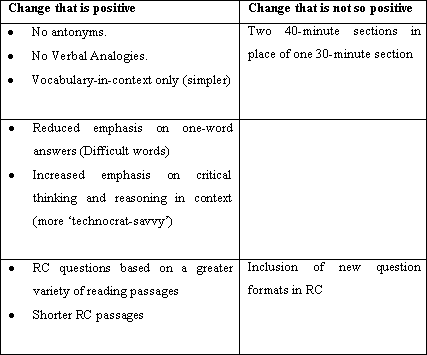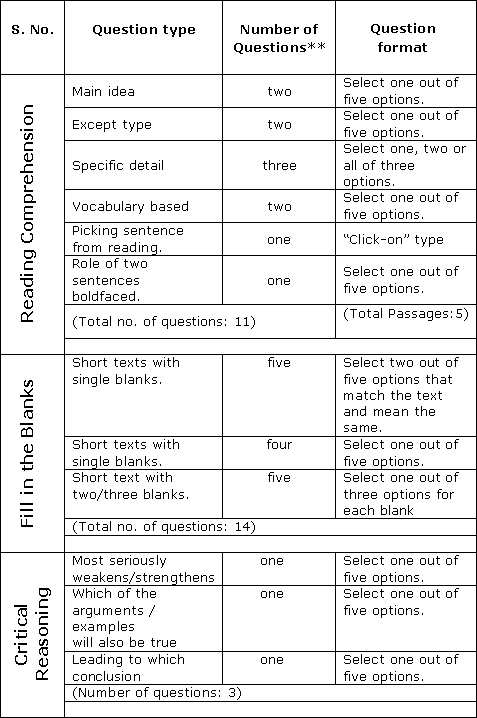|
|
| Help | |
| You are here: Rediff Home » India » Get Ahead » Study Abroad » Going to the US |
|
| |||||||||||||||||||||||
|
| |||||||||||||||||||||||
ETS's decision to dramatically alter the format of the Graduate Record Exam's Verbal Reasoning section sent shockwaves through the academic community. In India, the announcement that, 'Registrations for the old GRE have already been closed (excluding those that have already registered)' created panic.
Indian students, particularly those who had begun preparing for the current format, feel disheartened. While the entire test will be altered, only changes in the Verbal Reasoning section are substantial and dramatic. It is well known that the old section could be partially mastered through intense cramming sessions devoted to the memorisation of certain word banks and word families.
Now, those aspiring to study abroad have been left quite unsure and uneasy, hoping the new test will also allow mastery through a formulaic memorisation process. Unfortunately, the changes have been designed to temper the effectiveness of cramming and place more emphasis on gradually learned and acquired skills.
Even worse for Indian students, aspirants must now wait until July 1, 2007, to register for the revised test, till September 2007 to take the test, and November 2007 to get the scores. Therefore, the earliest academic semester for which they can apply is Spring 2008. Because US universities begin the academic year in autumn, the most advantageous semester to apply becomes Autumn 2008, a full year and a half from now!
But, while many are confused and disappointed, others have accepted the changes and understand the necessity of learning the new format. For those willing to optimistically greet this new challenge, we first take a look at the overall structural changes in the test:
Changes in Test Structure

Changes in the Verbal Reasoning Module: Two facets

Understanding new question formats
The new verbal reasoning test has two 40-minute sections. ETS has not yet clarified whether the two sections are identical in all respects. According to the most recent update, one section will contain 28 questions to be answered in 40 minutes. If this proves true, it will compare favourably with the existing GRE verbal format in which students must answer 30 questions in 30 minutes.
Regardless of number, the question types ensure the new section is a welcome change for logical thinkers. Again, memorisation of strict dictionary definitions will be much less useful, while more complicated cognitive reasoning will be required. Let's compartmentalise the different question types:

**Though it is by no means supposed to be rigidly formatted.
++Click here to see the sample questions given by ETS.
*Click here to practise more on the Verbal Reasoning Section.
Review
1. There are only three main question types in the new format, viz.
- Sentence completion
- Reading comprehension
- Critical reasoning
2. The vocabulary used is much simpler, but the answer options are closer in meaning, requiring the examinee to understand the context before selecting an answer.
3. The relationship between words and ideas is more important than the dictionary meanings.
4. The new question format requires examinees to decide whether one, two or all three answers are right.
5. New click-on type question format.
6. New question format of role played by boldfaced statements.
7. Shorter reading comprehension passages.
Simply put, the skills required to score well in the new test can only be learned and acquired, not crammed.
-- The author is Senior Trainer (Verbal) for the GRE, GMAT and MBA examinations at Top Careers and You , an organisation that prepares candidates for leading competitive examinations.
|
|
| © 2007 Rediff.com India Limited. All Rights Reserved. Disclaimer | Feedback |